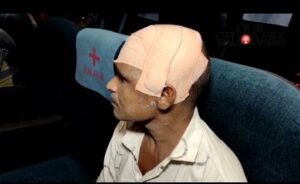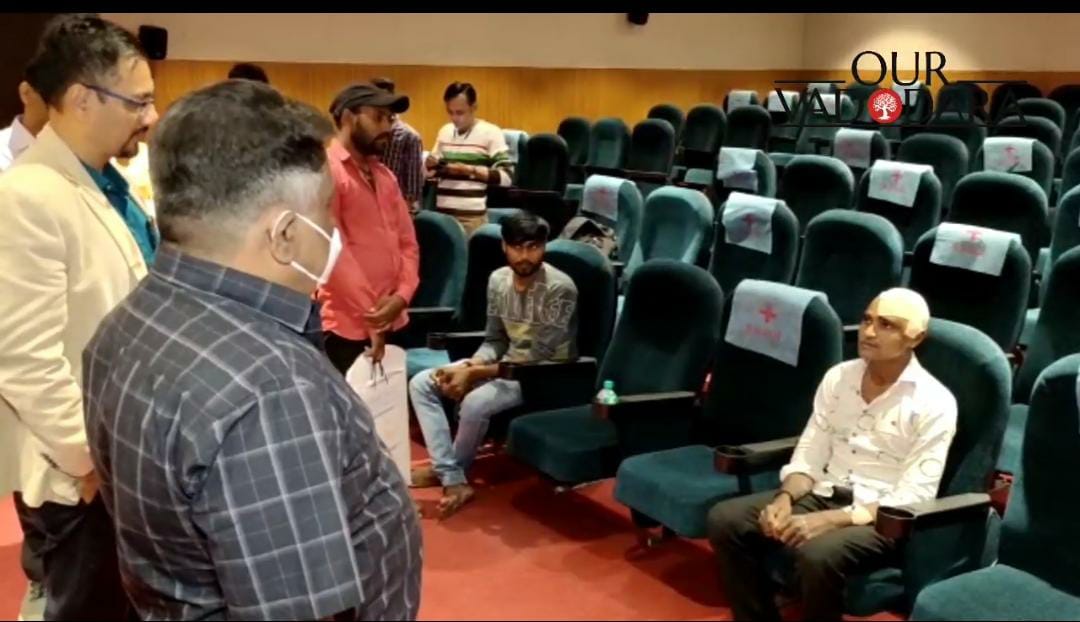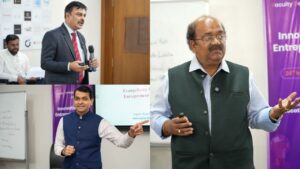Dhansukh Chouhan, 49, from Bharuch’s Tamadi village, was taken to SSG Hospital with convulsions and speech problems. A tumor on the left side of his brain was discovered in his MRI, known as Left Insular Glioma. Speech sites are located on the left side of the brain. Surgery in this area can potentially cause damage to these areas, resulting in speech and comprehension loss (called APHASIA).
As a result, Awake Craniotomy with Intraoperative Neuromonitoring (IONM), is used to operate on certain malignancies. By constantly conversing with the patient, the physicians decided to employ the procedure to operate on him.
Dr. Amey Patankar, Head of Neurosurgery Department of SSG Hospital, shared that it is crucial to note that the brain is a painless structure, and the skin over the brain is painful. In the technique, the patient is kept awake throughout the procedure while local anesthesia is given in the SCALP called Scalp to block the effect, which lasts for 10-12 hours, the skull is opened, the process is called a craniotomy. Furthermore, using intraoperative neuromonitoring, speech areas are identified by stimulating various areas of the brain. The patient is asked to speak to locate the area. If the patient stops speaking or experiences speech arrest, the area is marked as speech area and the tumor from that area is not removed. Then surgery is carried out a little away from the speech area.
He went on to say that 80% of the tumor got removed during the surgery. The patient began to have speech problems during the remaining 20% of the tumor excision. Therefore, the surgery was terminated. The patient is completely conscious and able to communicate. He will get discharged soon.  An MRI scan revealed that the tumor had been removed in 80-85% of cases. With the help of radiotherapy, the chances of faster recovery is anticipated.
An MRI scan revealed that the tumor had been removed in 80-85% of cases. With the help of radiotherapy, the chances of faster recovery is anticipated.
He further added, in our surgery, 80% of the tumor got removed. During removal of the last 20%, the patient started developing speech disturbance, and hence the surgery stopped. The patient is fully conscious and able to speak, he will soon get discharged. Postoperative MRI showed 80-85% tumor removal. This tumor can be treated further by radiotherapy.
The purpose of the awake craniotomy, according to Dr. Patankar, was to preserve speech regions. There was a high chance of the patient losing their ability to speak if the operation performed was under full-general anesthesia (aphasia). As a result, the goal in left-side brain tumors is to preserve speech, even if some tumors must be left behind. Because leaving a tumor behind is less problematic than forever robbing the patient of his ability to communicate.
Written by:
Shristi Chatterjee





